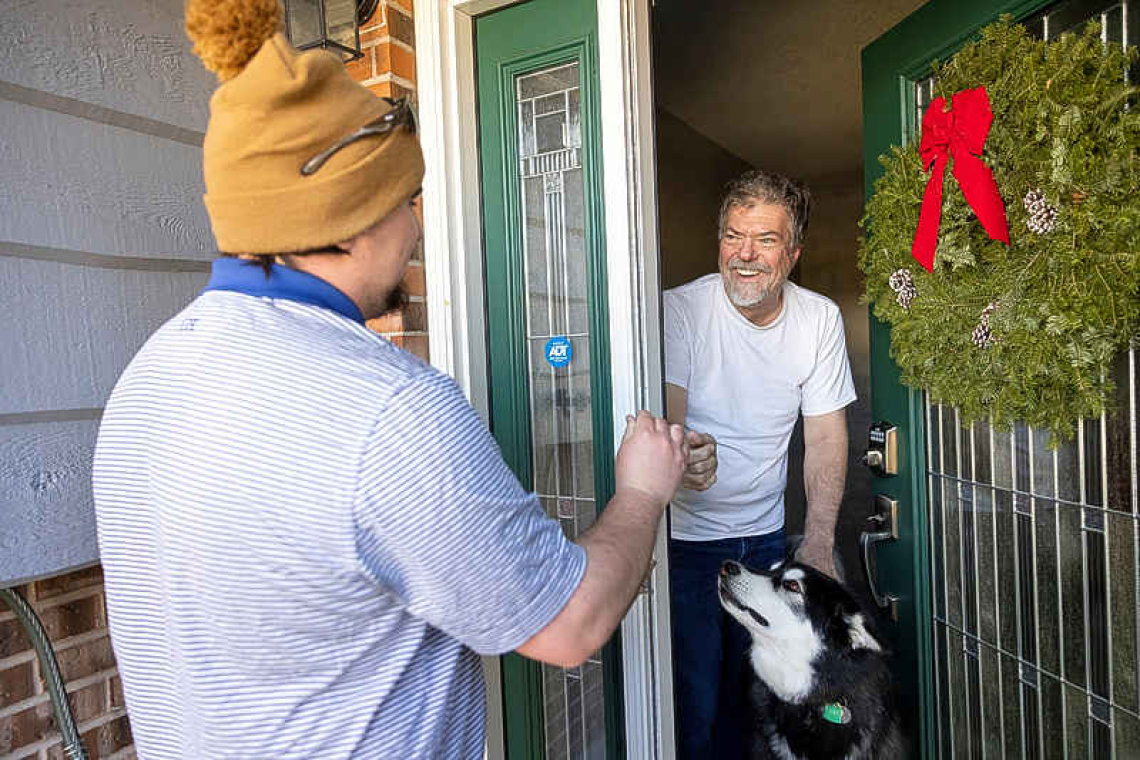Robert Bracket hands back a pen after signing a petition at his home supporting an initiative by No Labels, a third-party political group that is gathering support ahead of next year's U.S. presidential election, in Cheyenne, Wyoming, U.S., December 16, 2023.
CHEYENNE, Wyoming--American Bridge is the Democratic Party’s primary opposition research organization, spending tens of millions of dollars to track Republican rivals and produce attack ads. But in 2024, the deep-pocketed ally of President Joe Biden is adding a new role that could help shape the Nov. 5 presidential election: third-party suppressor. Worried that third-party bids from a centrist group called No Labels and anti-vaccine activist Robert F. Kennedy Jr. could siphon off votes from Biden in key states like Pennsylvania, Michigan and Arizona, American Bridge has hired prominent election attorney Marc Elias to help thwart these outsider bids, among other things. A central tactic employed: flagging technical issues or starting a legal challenge as third-party candidates navigate a patchwork of laws of get on state ballots. "We're keeping an eye out to make sure they're dotting all their i's and crossing their t's, and we are not ruling out legal action with our attorneys if we identify a problem — and that applies for all third-party threats to President Biden," Pat Denis, president of the American Bridge group, said in a statement to Reuters. Other Biden allies have also launched a multi-pronged assault to starve third-party candidates of financial and political support. In addition to trying to keep them off state ballots, they say they are asking donors not to send them money and warning potential candidates to stay on the sidelines, according to interviews with groups involved in the efforts. No Labels filed a complaint with the U.S. Department of Justice alleging those efforts represent an "illegal conspiracy to use intimidation, harassment and fear" against its supporters and donors, Dan Webb, a former U.S. Attorney and No Labels leader, announced on Thursday. U.S. demand for a third-party presidential candidate has reached record highs amid deep voter dissatisfaction with 81-year-old Biden and his likely Republican rival Donald Trump. A Reuters/Ipsos poll in December showed six in 10 respondents were unhappy with the two-party system and want a third choice. Polls show voters have deep concerns about Biden's age and the strength of the economy as well as Trump's threats to upend democracy. No Labels and Kennedy, two challengers who are not connected to each other, have amassed among the most well-funded and well-organized outsider bids in modern political history to test the major party firewall, political experts say. No Labels, which has yet to name a candidate, has already raised more than $60 million and has qualified in 14 states, including Arizona, Nevada and North Carolina - states that are likely help decide the election. It's on the ground or has submitted petitions in at least 13 more and plans to spend about half of its cash on securing ballot access across all 50 states. "We are in a super unique time where voters from New York to Wyoming are just fed up beyond belief with their options," Jane Hall, who worked in former President Bill Clinton's administration and is the No Labels co-chair in Wyoming, said as she went door-to-door in the city of Cheyenne collecting signatures for the party. Meanwhile, Kennedy and a Super PAC political organization supporting him plan to spend a combined $30 million to get him on state ballots. No third-party candidate has won a modern U.S. presidential election, although some like Ralph Nader in 2000 and Ross Perot in 1992 have played outsized roles as spoilers, taking votes from major party candidates. Democrats fear their party may splinter this time with a centrist third-party bid, while Trump's loyal base sticks with him. The Reuters/Ipsos poll in December showed Trump's lead widened to a 5-point advantage nationally when respondents were given an option to vote for Kennedy.







